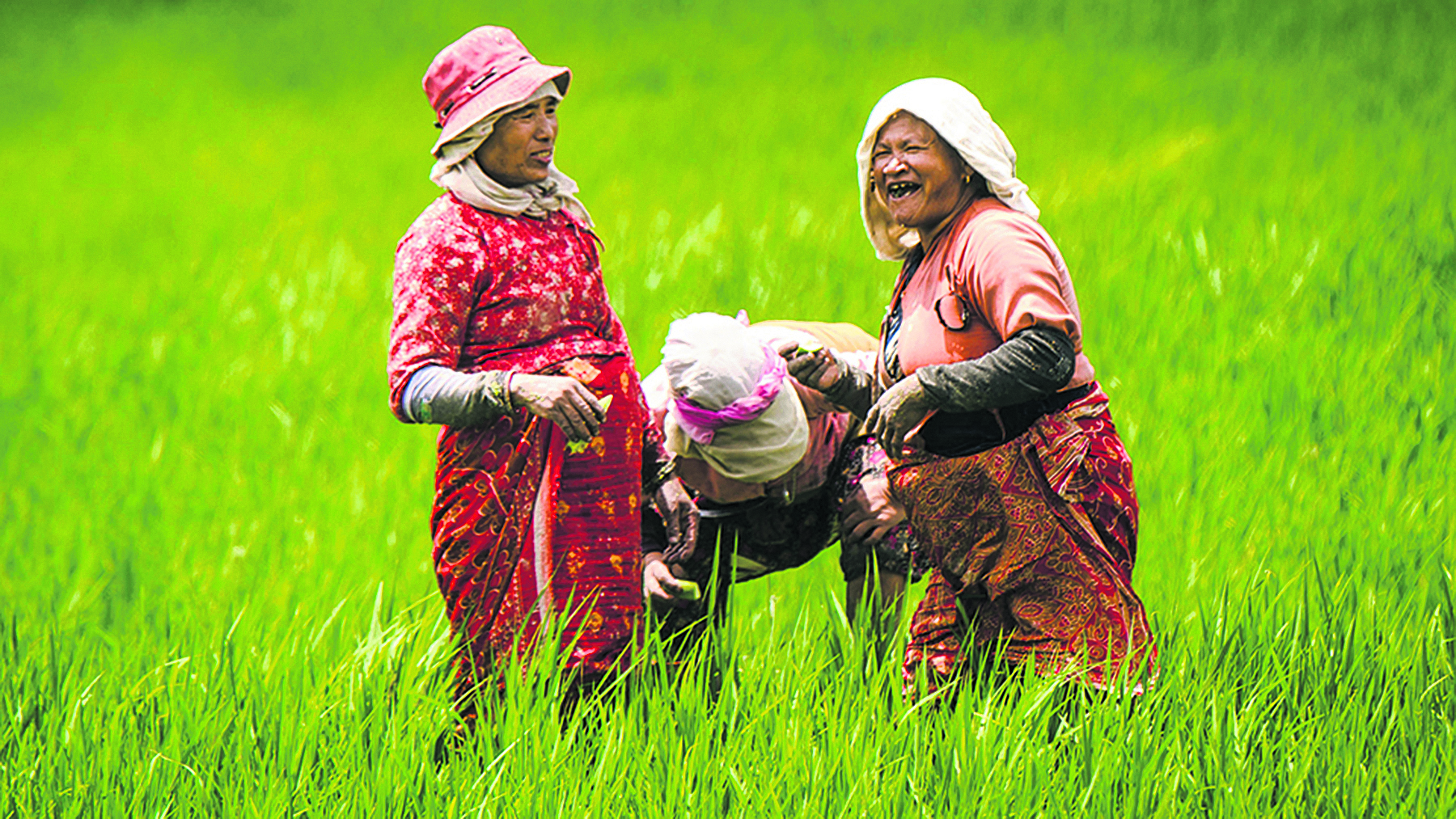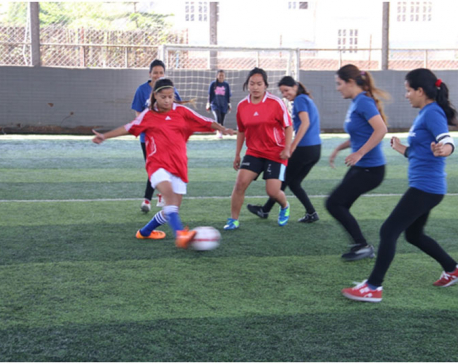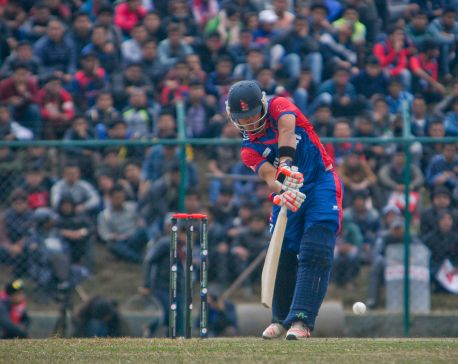
OR
Opinion
Women Farmers in Nepal: Vanguard of Rural Economy
Published On: March 14, 2023 09:00 AM NPT By: Kiran Mainali


Kiran Mainali
The author is an expert in the valorization of local and traditional food products with a major emphasis on food products certifications and agri-food systems.kmainali11111@gmail.com
Every year on March 8, International Women’s Day is observed to appreciate the social, economic, cultural, and political achievements of women. The day is celebrated advocating for gender equality and exterminating any biases persisting in a societal form. Also, this year, International Women’s Day was commemorated with the shared participation of the majority of countries of the world acknowledging women’s contribution in making this world a better place to live. The UN theme for this year's Women’s Day was “DigitALL: Innovation and technology for gender equality. In the contemporary era, where digitization has suffused across all major centers of human activities, there exist some specific domains like digitization in women's agriculture in the context of Nepali agriculture which is still bereft of easy access to these resources.
Women in agriculture: Nepal and the world
In the framework of agriculture in a developing country like Nepal, rural agriculture is mainly managed by women. It can also be alternatively put forward that agricultural activities in rural Nepal are feminized as the women smallholder farmers outnumber the men engaged in agricultural activities. As per the latest statistics of the World Bank, around 74 percent of the women are employed in agriculture in Nepal which is almost two times higher than the average women working workforce in South Asia (39 percent). If we refer to the numbers of women workforce participation in developed countries like the USA or the EU, the agriculture manpower accounts for mid 30’s average. The higher participation of women in agriculture is an axiomatic reference that conveys the gravity of supporting rural women for improving agricultural productivity in the country.
A larger workforce of women in agriculture
The mass exodus of manpower (men) to other economically lucrative markets can be ascribed to result in such striking disparity in the number of workforces dedicated to agriculture in Nepal. Due to the lack of enough incentives in the domestic market, most men’s population from the rural areas migrates to thriving markets, keeping women at the helm of managing and organizing farm activities and feeding their tight knits. The recent census of 2021, demonstrated the mass migration of Nepali rural men as it depicts 81 percent of the men population constitutes 2.2 million Nepalis relocated for a better quality of life. Such social-economic disruptions have effectuated a larger share of the women population engaged in rural agriculture in life.
Where rural women agriculturists need a helping hand
Nepal, being primarily an agrarian economy, is reliant on agricultural activities in supplementing its economic growth. As the mass departure of men for better income opportunities abroad has reached its peak, it keeps food security, and the rural economy in a precarious situation. However, there are occurrences where due to conservative and traditionalistic norms in the rural parts, women are mostly stigmatized for participating in agriculture. In this situation, as women have been on the frontline feeding the communities, they deserve promising support from local government, INGOs, and NGOs working on issues related to agriculture and food security, the provincial government, and the national government to empower them. Relevant policies, training, legislative acts on parity on farm payment, land ownership distribution, input availability, and transfer of modern innovation and technology need to be made assured to encourage more female uptake on conducting agriculture in a rural area of the country.
Innovative programs
With the overall mission of empowering rural women farmers from Nepal, multiple programs have been initiated both at the national and local levels by different relevant agencies and authorities. Increased women participation in resource management and decision-making in agricultural activities in Nepal has invoked the authorities concerned to roll out training and capacity enhancement targeted at women in rural communities. Rural women are upskilled by using climate-resilient agricultural practices, agricultural machinery with reduced drudgery, and also cash richer agriculture practices to sustain their economic situation. Some of the INGOs are also actively contributing to strengthening financial capabilities of finances through digital finances as access to credit or financial resources is one of the other central problems that rural women confront.
What next in digital education?
Today’s rural farmers are in desperate need of assistance as women in rural agriculture are forbidden from all essential factors of production including training, and entrepreneurship incubation. The private sector committed to farm management solutions and services needs to work in synchrony with rural farmers for synergy. Digitization in agriculture can also be leveraged to ensure market linkages to the agricultural products of the rural farmers encouraging better market returns. In addition to this, rigorous and tailored training programs can be launched by the associated stakeholders to empower rural women farmers through agro-extension services provided digitally. Nepal’s dependency on food import can only be curtailed, if rural women who have spearheaded rural agriculture along with male farmers are provided with opportunities and environment including digital facilitation under immediate effect.
You May Like This

Helping women re-envision a better Nepal: Women LEAD Nepal
KATHMANDU,March 7: Women LEAD Nepal started as an idea that women and girls could change the trajectory of Nepal’s future and... Read More...

Futsal for the women, by the women and of the women!
KATHMANDU, March 19: WE United Project launched the Mahila Premier League (MPL) on March 18 at Grassroots Recreational Center in Mandikhatar. ... Read More...

Nepal vs Kenya: Five crucial things Nepal looks for second match
KATHMANDU, March 12: Nepal is taking on Kenya on Monday in the second match of the ICC World Cricket League... Read More...









Just In
- Heavy rainfall likely in Bagmati and Sudurpaschim provinces
- Bangladesh protest leaders taken from hospital by police
- Challenges Confronting the New Coalition
- NRB introduces cautiously flexible measures to address ongoing slowdown in various economic sectors
- Forced Covid-19 cremations: is it too late for redemption?
- NRB to provide collateral-free loans to foreign employment seekers
- NEB to publish Grade 12 results next week
- Body handover begins; Relatives remain dissatisfied with insurance, compensation amount








Leave A Comment